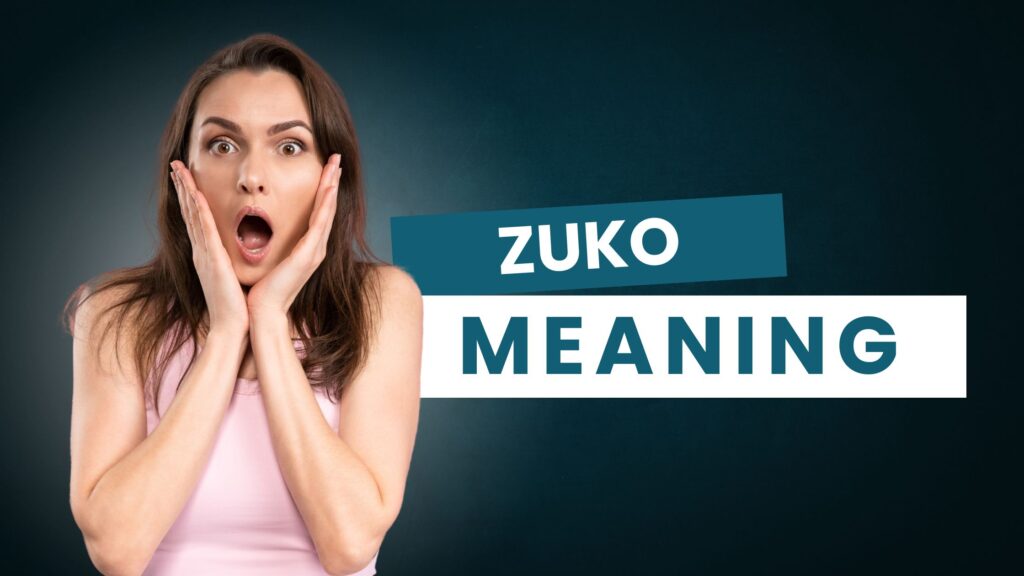The word “Ōkami” (大神 or 狼) comes from the Japanese language. It has multiple meanings, depending on how it is written and used. Simply, it can mean “great god” or “wolf.” The pronunciation stays the same, but the writing and meaning change.
Let’s explore these meanings and why they matter.
| Term | Details |
| Acronym | Not an acronym |
| Stands For | “Great God” (大神) or “Wolf” (狼) |
| Brief Description | Japanese word meaning either a powerful deity or a wolf |
| Antonym | For god: human / For wolf: prey |
| Synonym | Deity, spirit, wolf, guardian |
| Alternative Possible Meaning on Internet | A video game title, character name, or stylized nickname |
| Emotion | Spiritual, powerful, mystical |
| Safe for Work | ✅ Yes |
| Safe for Children | ✅ Yes (context-dependent; video game is child-friendly) |
| Emojis | 🐺🙏🌞 |
| Trending Date | First peaked in 2006 (game release); resurfaces in mythology discussions |
| Texting Meaning | Rarely used in texting; could imply “divine wolf” in niche groups |
| Social Media Meaning | Symbol of strength, mysticism, or reference to Japanese culture or gaming |
What Does Ōkami Mean in Japanese?
In kanji (Japanese characters), Ōkami is written in two main ways:
- 大神 (Ōkami) – This means “great god” or “great spirit.”
- 狼 (Ōkami) – This means “wolf.”
The word uses the long “ō” sound at the beginning, usually written with a line over the “o.” In Romanized Japanese, it’s often spelled “Ookami” or “Okami” too, though these versions might confuse the true meaning.
How Is Ōkami Used in Religion or Mythology?
In Shinto, Japan’s native religion, “Ōkami” as 大神 refers to powerful deities or kami (gods/spirits). For example:
- Amaterasu-ōmikami (天照大神) – The sun goddess, one of the most important deities in Shinto belief.
- In shrines, people may pray to an “ōkami” for blessings or protection.
Ōkami can be divine and sometimes tied to natural forces like the sun, wind, or animals. Read more slang meanings here.
What About Ōkami as “Wolf”?
When written as 狼, Ōkami means wolf. Wolves once roamed the Japanese islands, especially in the mountains. In older times, wolves were not always feared—they were often respected or even worshipped as protective spirits.
Some Shinto shrines are dedicated to wolves. People prayed to them for protection, especially for crops or against wild animals.
One example is the Ōgami Shrine in Saitama, which honors the wolf as a sacred messenger or guardian.
How Does the Word Ōkami Appear in Popular Culture?
The word became well-known worldwide because of the 2006 video game “Ōkami” by Capcom.
- In this game, players control Amaterasu, the sun goddess, who takes the form of a white wolf.
- The game blends both meanings: “great god” and “wolf.”
- It uses beautiful Japanese art and mythology to tell a story about restoring nature.
Because of this game, many people outside Japan learned about the spiritual and cultural importance of the word. Read more slang meanings here.
How to Pronounce Ōkami?
To pronounce Ōkami correctly:
- Say it like “Oh-kah-mee.”
- The “Ō” is a long vowel and should be stretched slightly: not “Ah-kami,” but “Oh-kami.”
- The stress is usually even, but some say it with a slight emphasis on the first syllable.
In everyday writing, people may drop the line over the “o” and just write Okami. But remember, this can also be confused with other meanings or names.
FAQ’S
1. What does an Ōkami tattoo symbolize?
An Ōkami tattoo often means protection, power, and spirituality. If it shows a wolf, it can represent loyalty, strength, and guidance. If it shows the god version, it may stand for divine power or connection to nature. Many people choose it to show inner strength or a spiritual journey.
2. Is an Ōkami tattoo only for people who follow Japanese culture?
No, anyone can get an Ōkami tattoo. You don’t have to be from Japan. But it’s important to respect the meaning and understand the culture behind it. Learning about the story or symbols can make your tattoo more meaningful and respectful.
3. Where is the best place on the body to get an Ōkami tattoo?
That depends on the size and design.
- A large design (like the game’s white wolf) looks good on the back, chest, or thigh.
- A smaller version can go on the arm, forearm, or shoulder.
Pick a spot where the details can stand out clearly.
4. Can I mix the Ōkami design with other symbols?
Yes, you can mix it with nature, Japanese art, or spiritual elements. Many people add cherry blossoms, suns, or clouds. If you’re inspired by the video game, you might include brushstroke effects or red markings. Just make sure the mix makes sense and looks balanced.
5. Do Ōkami tattoos hurt more than other tattoos?
The pain depends on the tattoo size and location, not the design itself. Places with thin skin or near bones (like ribs or ankles) hurt more. Areas with more fat or muscle (like the upper arm or thigh) hurt less. Talk to your tattoo artist to plan it in a comfortable spot.
Conclusion
The word Ōkami is rich in meaning. It can mean a divine spirit or god, or it can mean wolf, depending on the context.
It holds deep cultural, spiritual, and historical meaning in Japan. Whether you’re talking about mythology, language, nature, or video games, understanding the double meaning of Ōkami helps you appreciate Japanese tradition more deeply.


